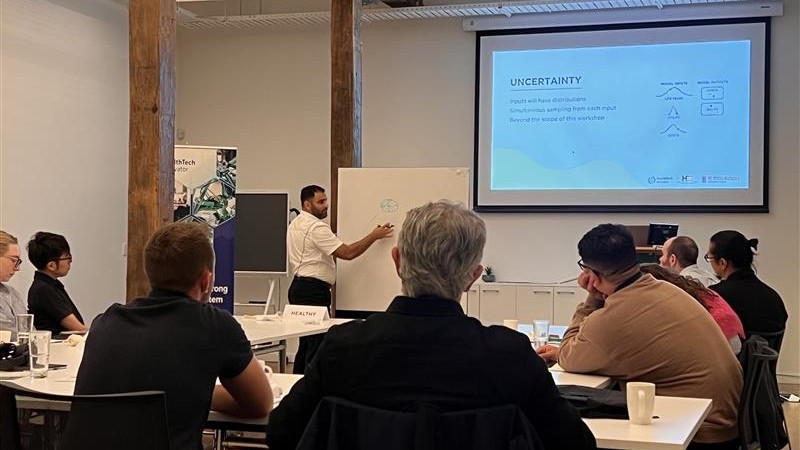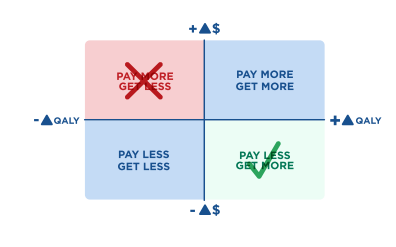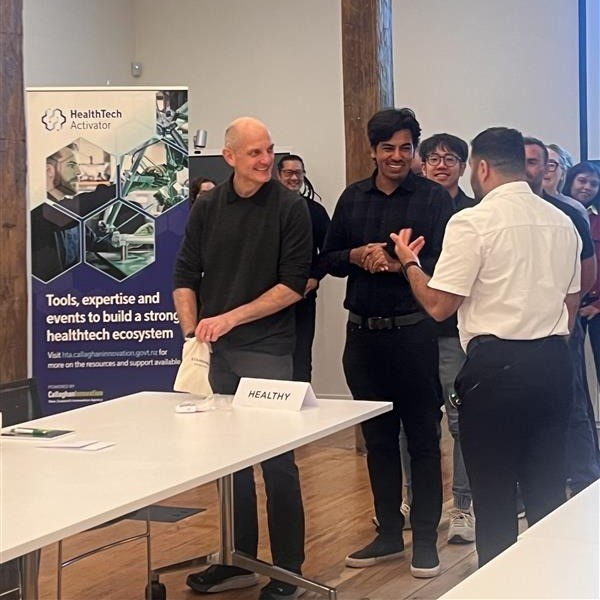
The Health Economics Workshop led by Abbas Al-Murrani provided an insightful and practical deep dive into the vital role of health economics in shaping modern healthcare decisions. With demand for healthcare services growing and resources increasingly constrained, Abbas emphasised that understanding economic value is crucial for navigating this complex landscape.
Importance of collaboration between funders and healthtech innovators: A major takeaway from the session was the shift away from the familiar “us vs. them” stance that often pits funders against healthtech companies. Abbas instead introduced a more constructive, collaborative perspective, where he positioned these groups not as adversaries but as partners united by a common goal: delivering value to patients and healthcare systems. This collaborative approach created a foundation for understanding how both sides can work together more effectively, particularly when efficiency and alignment are critical in a resource-limited environment.
The strength of the workshop lies in its interactive design. Through a series of case studies, roleplay exercises, and group problem-solving tasks, participants actively explored the principles of health economics. This hands-on format made abstract concepts tangible and gave participants practical skills they could apply directly in their roles.
A standout exercise involved tracing the patient journey through both standard care and new interventions. This allowed participants to see how treatments impact not only immediate clinical outcomes but also long-term costs and quality of life. By mapping out these pathways, they explored the complexity of integrating economic considerations with patient-centered outcomes. The goal was to deepen their understanding of the broader effects of healthcare decisions—on the system, the provider, and, most importantly, the patient.

Abbas provided participants with a clear overview of several core methods used in health economics, including Cost-Minimisation Analysis, Cost-Effectiveness Analysis, Cost-Utility Analysis, and Cost-Benefit Analysis. Participants learned when and how to apply each method through practical examples, such as evaluating the cost per life-year saved for two different interventions. These exercises helped clarify the Incremental Cost-Effectiveness Ratio (ICER) concept, a crucial metric in determining whether the cost of a new intervention is justified by its outcomes.

The ICER graph emerged as a key tool in the workshop. Participants worked through scenarios that required them to interpret the graph and place different interventions into the appropriate quadrants based on their cost and effectiveness. This activity brought the real-world trade-offs of healthcare decision-making into sharp focus, helping participants evaluate value for money, consider reimbursement thresholds, and understand how funding decisions are made.
The session also explored the full spectrum of healthcare costs, moving beyond direct expenses to include broader economic impacts. Participants examined everything from the cost of pharmaceuticals and hospital stays to indirect costs such as time off work. Abbas highlighted the importance of perspective—whether from a funders or societal viewpoint—as it can dramatically influence how the value of an intervention is assessed.
A particularly engaging part of the workshop was the roleplay simulation of a negotiation between a public healthcare agency (Pharmac) and a pharmaceutical company. Participants were able to step into the shoes of key stakeholders and experience the strategic, evidence-based communication required to navigate market access and pricing discussions. The scenario underscored how crucial transparency, data literacy, and storytelling are when making a compelling case for a product’s value.

Throughout the session, Abbas reinforced the centrality of evidence-based thinking. When constructing economic arguments, participants were encouraged to draw from clinical trial data, literature reviews, and reputable sources such as MEDLINE and Cochrane. This approach built participants’ confidence in assessing both direct and indirect costs while also considering uncertainty in modelling. Understanding how to handle that uncertainty—without over- or underestimating impact—was a vital skill emphasised throughout the workshop.
The workshop was a powerful reminder that health economics is not just about numbers—it’s about real people, tangible impact, and making thoughtful decisions that improve outcomes across the system. Abbas’s ability to simplify complex topics without losing their depth left participants feeling empowered and equipped to apply what they’d learned.
Ultimately, the workshop helped participants bridge the gap between theory and real-world impact. By emphasising collaboration and aligning economic, clinical, and ethical considerations, Abbas proposed a smarter, more transparent, and fairer healthcare system.
“The workshop was informative, relevant, and delivered at the level of information I was looking for in an engaging and inclusive format.”
“Extremely relevant to any medical technologist or innovation manager to assess the value of a medical product—especially valuable when seeking data to calculate health economics ahead of capital raising.”
“Excellent overview with enough detail to relate to specific devices”
Are you a HealthTech Innovator interested in reimbursement strategy? Keep an eye out for upcoming workshops on the Events page.